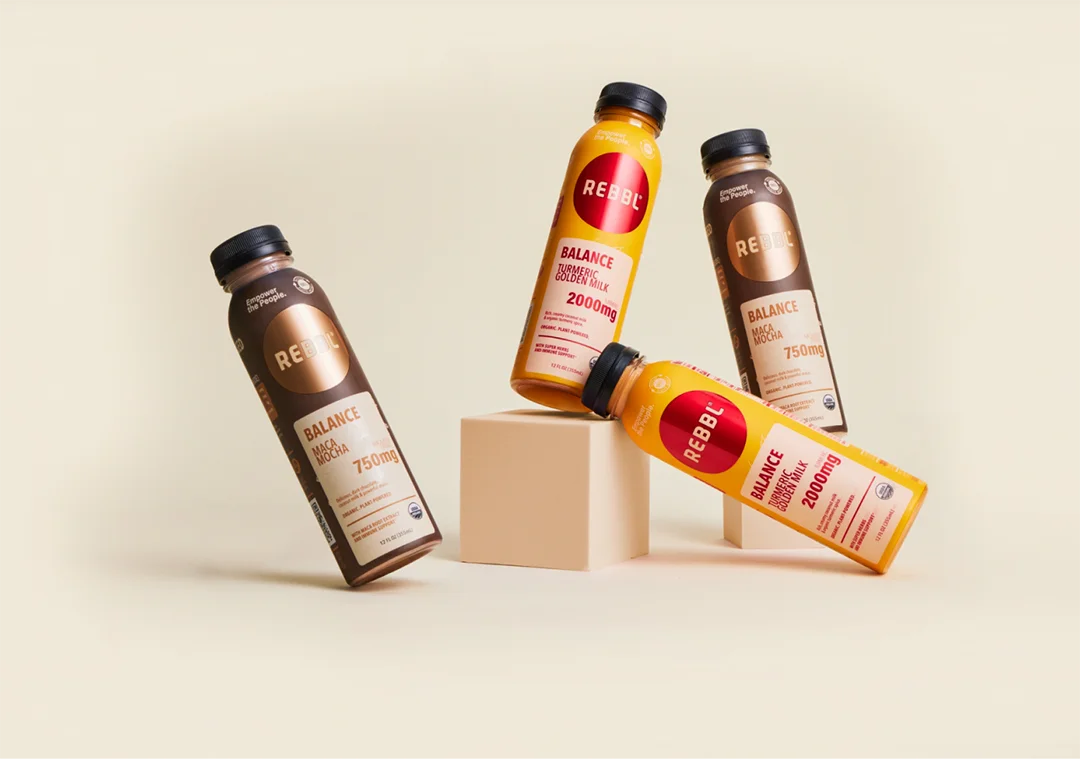

Sustainability
A Better Bottle
In 2020, REBBL transitioned to 100% recycled bottles (also known as rPET) that are 100% recycled and designed to be recycled. This creates a market for plastics that already exist, keeping plastics out of landfills, reducing fossil fuel use, and reducing water usage while saving greenhouse gas emissions from ever being created.
We've led the category in sustainable packaging for years, and this year we took it even further.
We've introduced a new, ribbed bottle design that allows our customers to enjoy the same amount of product, while saving 100,000 pounds of plastic per year.

Saving the Earth's resources
From an emissions standpoint using rPET uses 75% less energy than virgin plastic
- rPET bottles create a market to utilize the plastic that already exists in the world
- Every single one of our bottles is 100% recyclable (just remove the cap and label)e
The impact made by transitioning 20 million REBBL bottles to rPET:
- Reduces enough greenhouse gasses to equal saving 1,000 acres of forest annually.
- Reduces the number of fossil fuels equivalent to powering 680 homes per year.
- Saves enough water the equivalent to filling 7, 278 swimming pools.

Eco-friendlier Packaging
In 2021, REBBL transitioned to 100% recycled & recyclable cases, utilizing recycled corrugated paper. Using recycled cases minimized the use of Earth’s limited resources.
Estimated Annual environmental impact of using recycled material for cases:
- Saves over 2,400 trees from being used
- Conserves over 900,000 gallons of water
- Eliminates over 140 tons of Co2
- Eliminates 469 cubic yards of landfill.

Ethically And Sustainably Sourced Ingredients
Pesticides and herbicides can be damaging to the land’s natural biodiversity and can pollute waterways, which is why every single ingredient we use is 100% organic, and farmed with eco-conscious agricultural practices at the helm. We source ingredients from local, family owned, and female-owned farms in communities where this relationship helps support the local economy and real families. We source real food-ingredients in a way that is less disruptive to the planet and more beneficial for our farmers.


